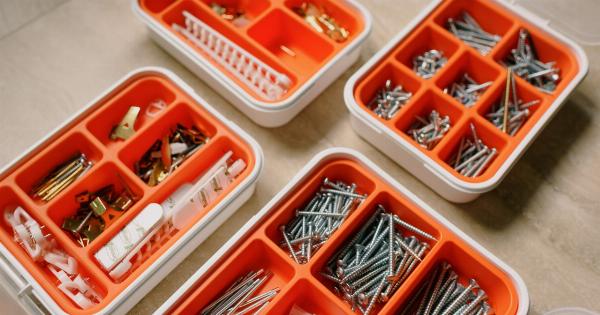As the flowers start to bloom and the weather starts to warm up, many of us start thinking about spring cleaning our homes.
While cleaning and organizing can be a great way to get your house in order, it can also contribute to allergies and other respiratory problems if you’re not careful. Dust, mold, and other allergens can accumulate in your home over the winter months, making spring cleaning an important time to reduce your exposure to these triggers. Here are some tips for reducing allergens in your home this spring:.
1. Start with a Deep Clean
Before you can start reducing allergens in your home, you need to get rid of any existing dust, mold, or other irritants. This means starting with a deep clean of your home.
Vacuum carpets, rugs, and upholstered furniture, using a high-efficiency particulate air (HEPA) filter to capture dust mites and other allergens. Dust all surfaces, including shelves, picture frames, and baseboards, and wipe down hard surfaces with a damp cloth to capture and remove dust rather than just pushing it around.
2. Wash Your Bedding
During the winter months, dust mites can accumulate in bedding, causing allergic reactions such as sneezing, itching, and wheezing.
To reduce the number of dust mites in your bedding and protect yourself from allergies, wash your sheets, pillowcases, and blankets in hot water and dry them on high heat. You can also consider investing in allergen-proof mattress and pillow covers.
3. Control Indoor Humidity
Mold thrives in moist environments, so it’s important to control indoor humidity to prevent it from growing in your home.
Keep your home’s humidity level between 30 and 50 percent by using a dehumidifier or air conditioner, repairing any leaks or water damage, and ventilating your bathrooms and kitchen when cooking or taking a shower.
4. Use Natural Cleaning Products
Many cleaning products contain harsh chemicals that can trigger allergies and respiratory problems. To reduce your exposure to these triggers, consider switching to natural cleaning products like vinegar, baking soda, and essential oils.
Not only are these products less likely to cause allergic reactions, but they’re also better for the environment.
5. Get Rid of Clutter
Clutter can accumulate dust and other allergens, making it important to get rid of any unnecessary items in your home.
Donate clothes you no longer wear, get rid of old magazines and newspapers, and sell or give away any appliances or electronics that you no longer use. A clutter-free home is not only better for your allergies, but it can also reduce stress and improve your mental health.
6. Remove Carpets and Rugs
Carpets and rugs can harbor dust mites, pollen, and other allergens, making it important to consider removing them from your home.
If you’re not ready to get rid of your carpets or rugs, make sure to vacuum them regularly using a HEPA filter and consider having them professionally deep cleaned at least once a year.
7. Keep Indoor Plants to a Minimum
While indoor plants can help improve air quality by removing toxins and producing oxygen, they can also contribute to allergies by harboring mold and other irritants in their soil and leaves.
To reduce your exposure to these triggers, keep indoor plants to a minimum and make sure to clean their leaves and soil regularly.
8. Change Your Air Filters
Dirty air filters can circulate dust, pet dander, and other allergens throughout your home, making it important to change them regularly. Check your air filters every month and replace them if they’re dirty or damaged.
Consider investing in high-quality air filters with a MERV rating of 11 or higher to capture even the tiniest particles.
9. Invest in an Air Purifier
An air purifier can help reduce the number of allergens in your home by capturing and removing them from the air.
Look for an air purifier with a HEPA filter, which can capture particles as small as 0.3 microns, including pollen, dust mites, and pet dander. Depending on the size of your home, you may need multiple air purifiers to adequately cover each room.
10. Keep Your Home Clean Year-Round
Spring cleaning is a great opportunity to reduce allergens in your home, but it’s important to keep your home clean year-round to prevent them from accumulating again.
Vacuum your carpets and rugs regularly, wipe down surfaces with a damp cloth, and invest in a robot vacuum to help keep your floors clean in between deep cleanings. By staying on top of cleaning and maintenance, you can reduce your exposure to allergens and improve your indoor air quality.































